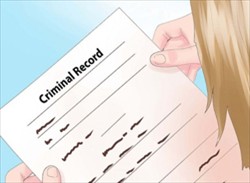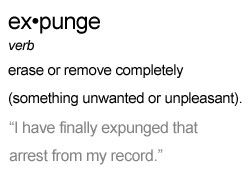|
Governors Pardon Or Clemency
If you have been convicted of a crime and you are seeking to have it removed from your record, you may petition the Pennsylvania Board of Pardons for clemency, or a pardon. A pardon does not remove record evidence of a criminal conviction, rather it is a sort of official forgiveness or absolution from the criminal conviction. The process of seeking a pardon is complex and lengthy. Petitioners for a pardon are advised by the Board of Pardons to expect the pardon process to take at least three years. The process of seeking a pardon involves completion and filing of an exhaustive petition and application, an investigation by Pennsylvania State Parole, and possibly a hearing before the Board.
There are no minimum eligibility requirements for a pardon, however, the applicant should be able to demonstrate a reasonable period of time having elapsed since the crime (sufficient to show rehabilitation) and successful completion of all court-imposed requirements such as probation, parole, and payment of all fines and costs.
Factors Considered by the Board of Pardons In Evaluating Pardon Requests include:
How much time has elapsed since the commission of the crime(s)? Obviously, this factor, coupled with being crime free after the offense, is one of the best indicators of whether the applicant has been successfully rehabilitated. Further, the more serious, or numerous, the crime(s), the greater the period of successful rehabilitation that the applicant should be able to demonstrate.
Has the applicant complied with all court requirements? The applicant should be able to demonstrate successful completion of all court-imposed requirements such as probation, parole, and payment of all fines and costs.
Has the applicant made positive changes to his/her life since the offense(s)? Successful rehabilitation may also be demonstrated by positive changes since the offense(s) in applicant's career, education, family or through community or volunteer service, particularly in areas that relate to the offense(s).
What is the specific need for clemency? The applicant should identify a specific need for clemency, e.g., a particular job that applicant cannot get, or some particular activity that he/she cannot participate in without clemency. as opposed to the more general answers of "employment purposes" or "to put this behind me" that applicants frequently use. Except in extraordinary circumstances, the Board does not view a pardon as an appropriate means of restoring any disability that has been imposed pursuant to a state law, e.g., suspension of driver's license, revocation of professional or business licensure, etc. Rather, the Board generally defers to the General Assembly and the means of restoration provided for in the law in question.
What is the impact on the victim(s) of the offense(s)? The Board’s regulations require that victims or next of kin be notified and given the opportunity to appear at the hearing or make a confidential submission in writing. Applicants should be aware that victims or next of kin may be present and, in any event, will have their viewpoint considered by the Board. |











